Subscribe to our newsletter to keep up to date on all of our latest events, projects and news.
SubscribeLanguage paints the picture for a greater story
21 August 2024 - NewsBy Ayesha Ansari, Mirror Me Write
This article and anti-racist reading list has been written in response to the horrific far-right race and Islamophobic riots that took place in the UK between the 30th of July and the 5th of August 2024.
When I agreed to write this article, I had to really consider what exactly it was I wanted to say. You see for me and many other Muslims, asylum seekers and children/people of colour, these recent riots have instilled a new sense of anxiety that we will carry in the pits of our stomachs – every time we walk out of our doors, for months to come – long after the dust settles and convictions are handed out. Without a doubt, the impact of the riots is something schools and teachers will have to address in September, to foster safe spaces, so the hostility that marred the summer holidays doesn’t filter into our classrooms.
As someone whose job it is to read stories, but who also works in Education and from being on the receiving end of such hate, I set up Mirror Me Write not only to provide books, but to advocate for change in how these books are actively used in core curriculum work and discussions in the classroom. My hope is to source and supply books that embed and support empathy and understanding of the wider world, have great storylines, but are also aesthetically beautiful and pleasing. More than ever, I want the books I supply to provide alternative narratives and perspectives, so that education and literature is no longer solely centred in the neurotypical gaze of the white middle-class.
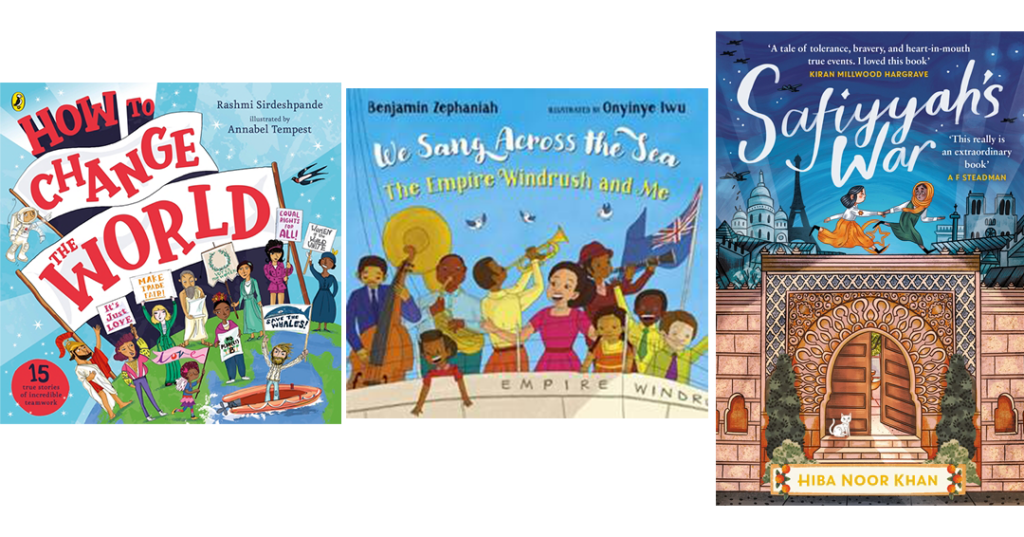
For me, sourcing books like ‘How to Change the World’ by Rashmi Sirdeshpande and illustrated by Annabel Tempest, ‘We Sang Across the Sea’ by Benjamin Zephaniah and illustrated by Onyinye Iwu, ‘Saffiyah’s War’ by Hiba Noor Khan, ‘Get Up, Stand Up’ by Cedella Marley and illustrated by John Jay Cabuay, ‘You’re so amazing!’ by James & Lucy Catchpole, to name just a few, shouldn’t appear as a responsive strategy to hate crimes but should exist because they are brilliant books, promoting visibility, building empathy and normalising representation. School bookshelves should mirror a wider global community where all people and their experiences are valid, equal and valued.
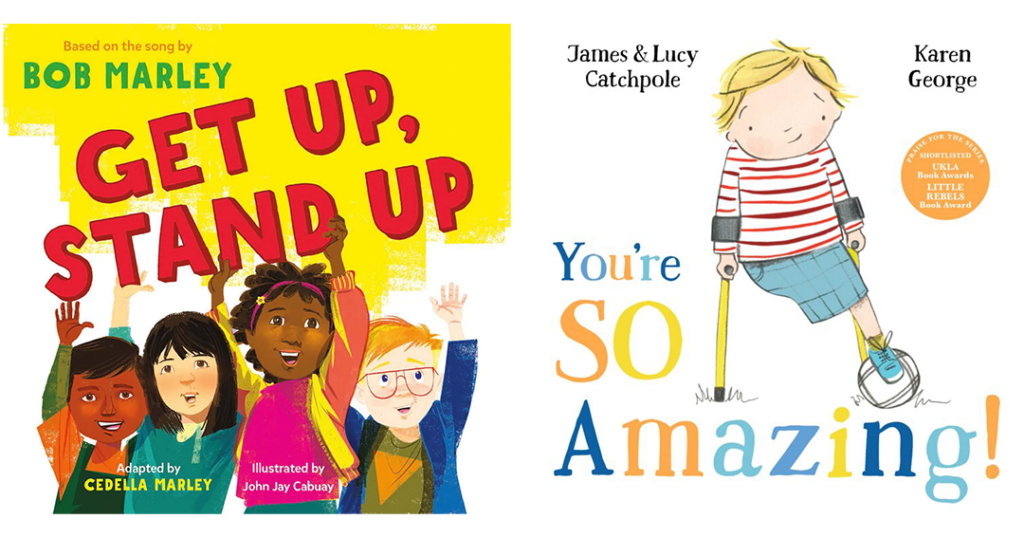
To date, anti-racist and inclusive books only get profiled once a major incident happens, and institutions start to jump on the bandwagon that is a call for change. My hope is that with further dialogue, these books claim spaces in all bookshelves and classrooms across the country, and are present all the time – not just when it is ‘Black History Month’, ‘Refugee Week’ or some other themed event. As educators, we can no longer rely on tick-box gestures but instead need to embed critical and active change.
People of colour, and particularly Muslims, are no strangers to animosity and targeted hate. But this time that rhetoric and misinformation has been unequivocally engineered and spread by warped, ego-driven social media influencers, disgraceful politicians and most notably a hugely biased state-media. Through our printed news, mainstream news channels and social media platforms, the loaded language used by journalists and reporters alike gave a green light for a deep-rooted hate, that has been festering, to spread like wildfire.
I set up Mirror Me Write not only to provide books, but to advocate for change in how these books are actively used in core curriculum work and discussions in the classroom. My hope is to source and supply books that embed and support empathy and understanding of the wider world.
Language paints the picture for a greater story, and for as many years as I can remember – without any accountability – Western media has pivoted theirs on an agenda driven by hypocrisy, white-centric supremacy and the flawed notion that Britain is still an imperial power. For far too long, as puppets to the government, the media has used language and stories to intentionally otherize people and be divisive, controlling the opinions of the nation-state. There stories have perpetuated a culture of fear amongst White-British communities. And as we’ve seen over the last two weeks, this has encouraged mobs of disgruntled people who’ve suffered through years of austerity and, more concerningly, fascists to come together. They’ve taken to the streets of Britain, committing acts of terror, vandalism, arson and even attempted murder – all in the name of protecting their ‘Whiteness’ and the very country they were rampaging.
Two books that provide some reflection on how these attitudes have materialised were written by Akala and Layla F Saad. In their respective books, ‘Natives – Race & Class in the Ruins of Empire’ and ‘Me and White Supremacy’, both authors provide insightful discussions around restorative history and the post-colonial experience.
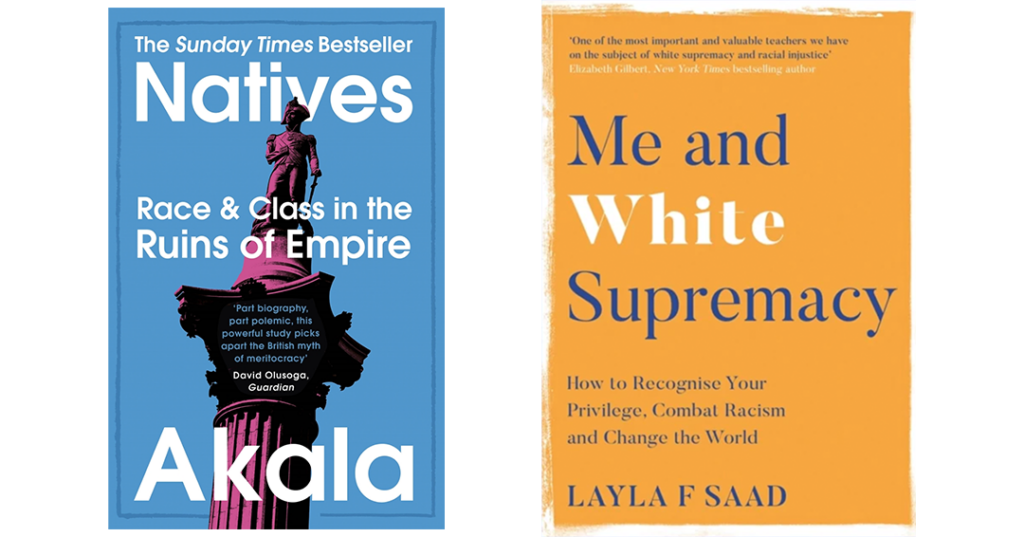
Watching the scenes unfold, I was so deeply perturbed by the knowledge that, for so long, people have been ill-informed and fear-driven by their own government and media, to scapegoat others. This alone begs for a shift in our curriculum so that Colonialism is taught, not as a diversity push but to promote understanding of how communities from all over the world have contributed to sustaining Britain.
Shelina Janmohamed in her non-fiction middle grade book with a similar name, ‘Story of Now-Let’s talk about British Empire’, provides an excellent commentary on Britain, whilst encouraging her readers to critically think of the cause and effect of colonialism. Her book would make for a wonderful starting point in Key Stage 2, if any teacher would like to teach British history with accountability and in a wider and more honest context.
Of all the things that rattled me during the riots, what was most disturbing was the amount of young white British children that partook in these riots. Foremostly as a mother, and then an educator, this gave me literal chills. You see, anyone with any knowledge on children will know that racism is not inherent to them but is an ideology that is nurtured and taught. It was therefore shocking to witness scenes where young children were being encouraged to hurl racist abuse outside places of worship. Not only did this scream of major safeguarding concerns, and how far-right terrorism is mobilising itself as an abusive indoctrination of young minds, it also shed light on how individuals, agencies and institutes working with young people need to respond and review existing Prevent legislation.
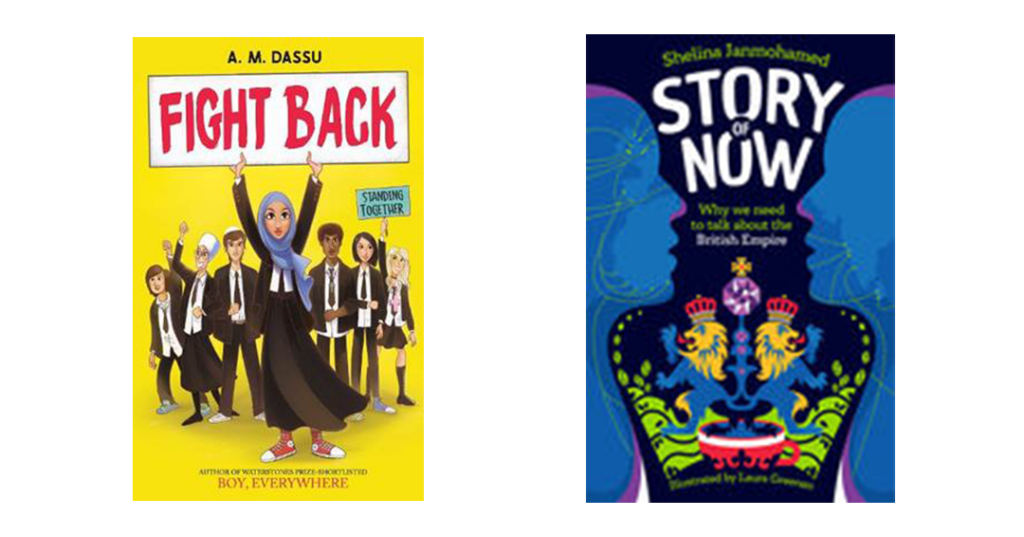
This theme of far-right radicalisation and Islamophobia is so powerfully addressed in A.M Dassu’s incredibly inspiring book, ‘Fight Back’, released in June 2022. Here Dassu, through her female Muslim teenage protagonist Aaliyah, challenges issues around identity and some of the misconceptions around her faith. Dassu writes with empathy and compassion. When she set out to write ‘Fight Back’, she did so with the intention to “show a different side to a story the world thinks it knows”, and she does this successfully. However, it is her underlying theme of allyship and the need for community that rings the loudest.
The children’s books I mention are just a few of the brilliant books out in the world, that just by existing can promote a culture of active anti-racism. This visibility of all people needs to start from the Early Years, from the picture books we choose to share right through to the texts used to the end of High school. Despite all the horrid scenes across the country, a sense of hope still prevails, as different communities came together in peaceful anti-racist demonstrations, to show their solidarity and unity in the face of such contempt.
For parents who would like to equip themselves better, I would also like to recommend ‘Wish We Knew What to Say’ by Pragya Agarwal, ‘This Book is Anti-Racist’ by Tiffany Jewell and ‘Stand Up and Speak Out Against Racism’ by Yassmin Abdel-Magied.
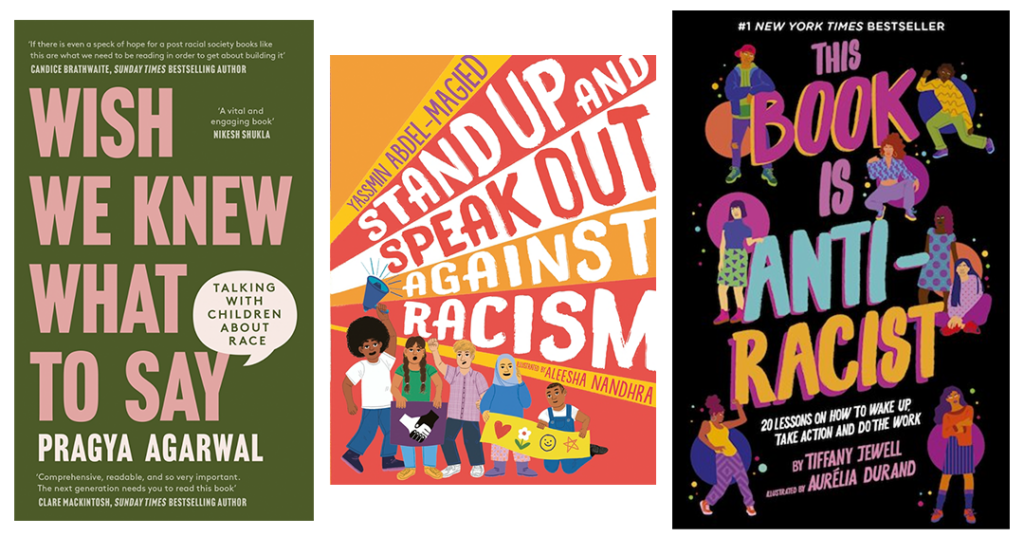
As a lasting thought and a reflection of the power of reading, I leave you with the words of Malorie Blackman,
“Reading is an exercise in empathy; an exercise in walking in someone else’s shoes for a while.”
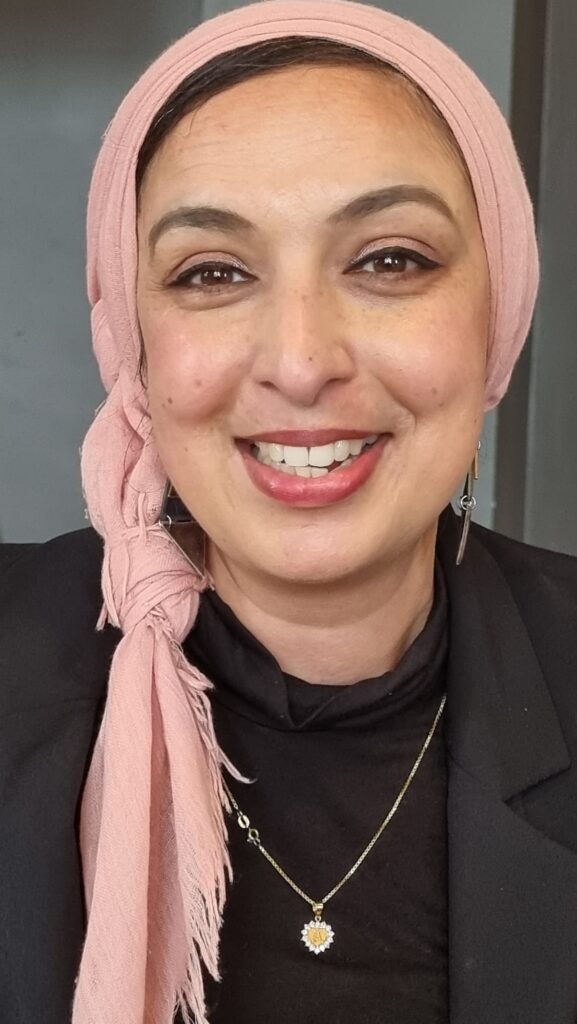
Ayesha Ansari is a Teaching Assistant, mother of two and the founder of Mirror Me Write, a Manchester online indie bookshop, promoting inclusive books and authors from underrepresented backgrounds. She established her business at the end of 2019.
Mirror Me Write grew from Ayesha’s deep commitment to representation and desperately wanting to see more books with multiple narratives being promoted. As someone who loved Literature, she saw schools relying on familiar texts.
Whilst being useful in terms of topics, they felt dated and non-reflective of wider society. She wanted to promote books
that would be windows and mirrors for all children to see themselves in, whilst promoting tolerance, empathy and a better understanding of the world.
Her hope has always been to affect positive change in schools by helping them to identify key inclusive and own voice books that could be used across the curriculum. In her words, “Representation is not a privilege, it’s a right!”.
